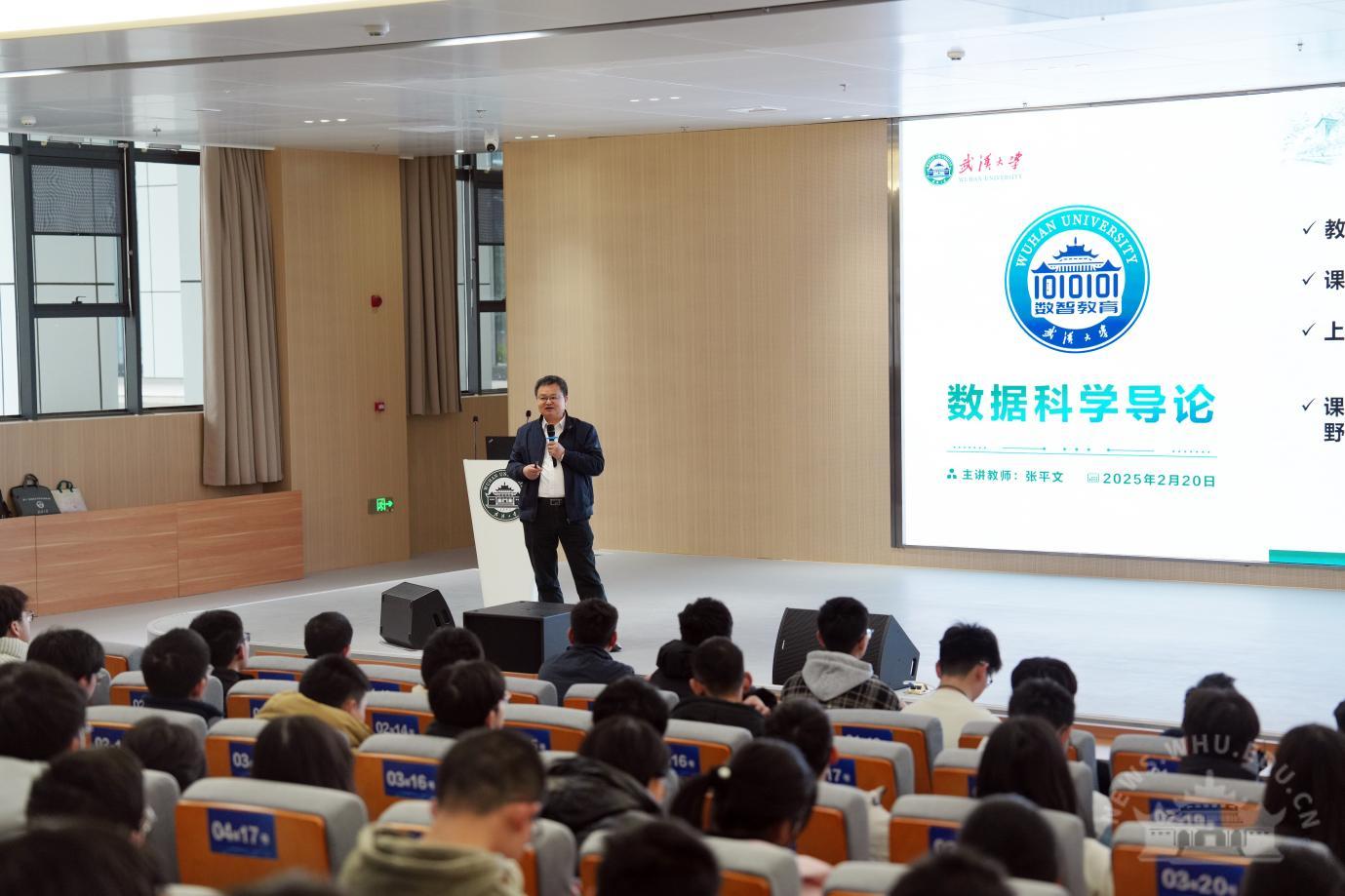On the morning of February 20, Academician Zhang Pingwen, President of Wuhan University, delivered the first lecture of “Introduction to Data Science” to 230 undergraduate students majoring in mathematics from the Class of 2023 at the School of Mathematics and Statistics in the Lei Jun Building Auditorium. As an important part of Wuhan University’s core “Four-in-One” general education curriculum system, this course is not only a core component of intelligent-digital education but also an interdisciplinary course designed to empower the dissemination of scientific and technological innovation through digital means, strengthen digital thinking, and promote cross-disciplinary application. Zhang Pingwen explained the basic concepts and applications of data science in a clear and engaging manner, sparking great interest among the students in this cutting-edge field and demonstrating the university’s strong commitment to undergraduate education.

Starting from the definition, development history, research scope of data science, and the structure of the intelligent-digital course system, Zhang conducted an in-depth analysis of the similarities and differences between the currently popular fields of artificial intelligence and data science. Using the DIKW pyramid model, he explored the essence and implications of data, guiding students into the vast world of the data era. He pointed out that data labeling, as an important means of information processing, involves multiple technologies and provides a solid foundation for the sustainable development of emerging fields such as artificial intelligence.
It is reported that to help students better integrate into the broad realm of intelligent-digital education, Wuhan University has meticulously designed a curriculum system covering four major types of courses — “general education, empowerment, application, and specialization.” The university has also adopted a modular “classification + gradient” course selection model, a flexible “integration + innovation” structure, and a differentiated “foundation + scenario” teaching strategy to ensure comprehensive coverage and coherent training from high school through undergraduate and postgraduate stages. This diversified curriculum system effectively breaks down traditional disciplinary barriers and helps students from different backgrounds find learning pathways that best suit them.